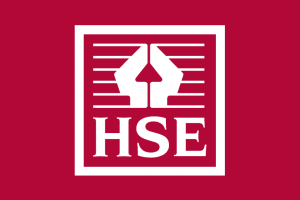Legal Requirements Every Small Business Should Know

Starting a new business is a busy time for an entrepreneur. You’re developing a business plan and getting your financial plan in order. Another vital step you need to ensure is that all legal obligations are met. The failure to do so can result in fines or possibly even court proceedings.
From choosing a name for your business to employing staff, this guide should help you tackle the legal aspects of starting a business in the UK.
What are the main areas of business compliance to consider?
If you’re setting up a company, some of the most important compliance considerations include:
- Complying with applicable industry regulations set out by professional regulators – for example, the Financial Conduct Authority
- Complying with finance regulations – such as tax, payroll, HMRC, accounting, record keeping, Companies House, and anti-money laundering regulations
- Employment law and workers’ rights
- Health and safety for workers and visitors to your offices/site
- General Data Protection Regulation (GDPR)
- Contracts and agreements with third parties
- Sector-specific permits, licenses, permissions
What legal documentation does my small business need?
To make sure your business is compliant, you should regularly review and update all your legal documentation, including agreements, contracts, forms, letters, policies, and procedures. This applies across the board and covers everything from employment and business law to tax and health and safety. As an employer, the documentation you need includes:
Employment law
This ensures each employee is protected by specified employment terms, which is a legal requirement and demonstrates that you have the correct policies in place:
- Employment contracts (written statement of employment)
- Grievance, disciplinary, and HR procedures
Business law
All documentation that registers your business relates to tenancy and financial arrangements or protects your business, products, and services:
- Companies House information
- HMRC papers
- Data protection documents
- Tenancy agreements
- Details of financial agreements
- Contracts for goods and services
- Intellectual property
Tax
Retain any information which is provided for tax purposes:
- Bank statements
- Invoices
- Record of expenses
- Previous tax returns
Health and safety
Ensure you regularly complete risk assessments and have procedures in place to log incidents:
- Displaying a health and safety regulations poster
- Keep accident and incident reports
- Carry out risk assessments (in writing if you have five or more employees)
- Create a health and safety policy (in writing if you have more than five employees)
How can I keep my business compliant?
The regulations are ever-changing, with new rules and updates constantly coming into place – and there’s no doubt that it’s a huge challenge for small businesses.
Get Legal Advice work with Start-Ups, Scale-Ups, Entrepreneurs, Founders, Business Owners, Creators, Talent, Disruptors, and Fast Growth Companies, making legal advice and support accessible to all. Get in touch with them today to find out more about how they can help you or your business.







